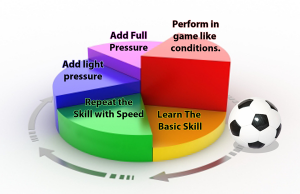One of the most useful things I have ever done is this:
I would find a mentor. I offered my services to do whatever needed done. More often than not I learned useful skills through the doing. Skills that I needed for myself. And while I was around the mentor, I could learn from him.
Life needs a lot of skills to do life successfully. The opportunities to learn those skills is sparse… Because skills are not knowledge, even if they are mental, intellectual skills: they are the ability to do, to perform a skill… not to understand it.
 To learn skills on your own stuff is very difficult. Why? Because you are too invested, you are too close, you are too critical, and you don’t pay attention to learning the skill, you only pay attention to getting things done.
To learn skills on your own stuff is very difficult. Why? Because you are too invested, you are too close, you are too critical, and you don’t pay attention to learning the skill, you only pay attention to getting things done.
Example: If you are an artist or a crafts creator: Marketing, website building, communication, graphics, ebook making, email writing, email management… all skills that when you try to learn it to do your own, you suffer too much, because you really only want the results, not the skill.
It’s a lot like as if a medical student wanted to learn surgery through operating on their parents…
No skill is built, and lots of parents dead or maimed…
Why are there not many people who choose this method of skill building?
I think it is because people cannot see the forest for the trees, or the trees for the forest… both apply.
The forest is the big picture, the context, the why and what for.
- They may not see that they need skills… arrogant and delusional
- They may resent that they need to build skills… after all life should be a free for all
- They may not see that they are served. They may be like the kid in the Karate Kid when he complains to Mr. Miyagi that he is using and abusing him instead of teaching him. Not seeing the forest for the trees.
Seeing the forest for the trees is an intangible, spiritual capacity
Seeing the forest for the trees is an intangible, spiritual capacity. The tree is the part: work for free. The forest is the big picture: the skill will enable you to do the same thing for yourself, in your own project.
It is surprisingly not the Big Picture capacity, although it needs humility active to work.
It’s a capacity in its own right. It’s a capacity that any expertise needs, and is as rare as real expertise.
So, how do you go about getting a deal like this?
Here are the steps as I see them:
- Find someone you want to learn from without having to pay for it. Can be a spiritual teacher, a money teacher… any area really…
- Approach them and tell them that you want to learn from them. Make sure you have a “worth a damn factor” high enough to deserve it.
- Tell them that you are eager to offer your services, if you can find the right type of work. For free.
- Tell them what is your skill goal… or what is your project inside which you need skills. The right person, if they can see the forest for the trees, will see what they can do for you
- If accepted, make sure you do a two-headed job: build your own skills/do the best job for them you can. Remember that they know what you want to accomplish, so they won’t expect you do it fast and perfect: it is a learning experience.
- If you, at any moment, start thinking that it is an imposition, that you are doing something for them, either quit, or change your mind. Quickly. Your attitude will show through, you cannot hide it.
- When one skill is developed to a usable level, ask for another skill developing task. If not available, move on to a different mentor.
Why should this arrangement be free?
You want to build skills, while being around a person you admire, you want to learn from.
 If it were a paid arrangement, it would be a job. Jobs are notoriously poor choices to develop skills. Why? Because a job is about getting things done, not about building skills. They won’t even let you near a task that needs skills, unless you have them…
If it were a paid arrangement, it would be a job. Jobs are notoriously poor choices to develop skills. Why? Because a job is about getting things done, not about building skills. They won’t even let you near a task that needs skills, unless you have them…
But when you do it for free, you are treated differently. You can pay attention to the skills, the moves, the thoughts, the patterns, because that is YOUR job.
The difference between an unhappy slacker and a happy person is the number of opportunities they have had to build skills to create something worth creating.
If you don’t like your life you probably need to, urgently, start building skills.
If you don’t like your life, you probably need to, urgently, start building skills. And not only the skills you like, but the skills that complement the skills you like… social skills, marketing skills, communication skills… maybe even learning skills, reading skills, writing skills.
There are a number of skills I need to learn myself. Every skill learning starts with deep pain… I don’t mind. I can see the forest for the trees. Can you?
PS: What else can be in your way of learning new skills?
One of my students discovered that they have a fear of changing topics, going from task to task. They are afraid to go to a webinar in fear of losing their train of thought.
I pointed them to the book “Change your brain, change your life” by Daniel Amen. If you can’t or are afraid to pivot out of one topic and go to the next, this is most frequent issue after ADD… that plagues people. The cause is often traumatic brain injury. I have had those…
If you have this: skill building won’t happen for you, because skill building is an extracurricular activity… Read the book and get help. I want the best for you. I don’t have an activator for that.
There is a brain health evaluation thingie on their site as well.
PPS: useful link: how to learn a new skill in 20 hours or less
Even the title indicates that skills are not learned by waving a magic wand, as you have hoped.
Read the original article: One of the most useful things I have ever done for myself